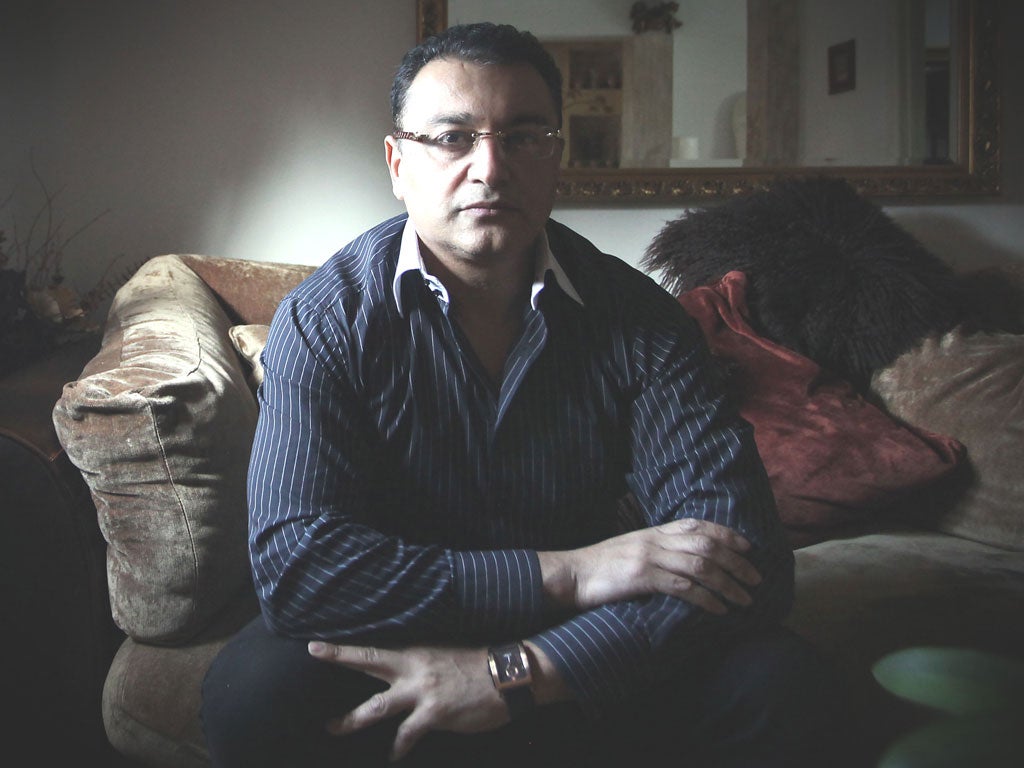Ali Dizaei: The 'copper' who refuses to go quietly
Recently released from jail, he tells Paul Peachey why he became the most senior police officer to be jailed for corruption, why prison does not work, and of his fears for his family's future

He calls himself a "radical activist" and compares himself to some of the victims of the most notorious miscarriages of justice of the modern era. He paints himself as an outsider of an "old boy's network" at Scotland Yard and the target of a media witch-hunt. But Ali Dizaei, the most senior police officer found guilty of corruption for a generation, said at the end of the day "I'm just a copper".
Not for much longer. Dizaei, 49, is expected to be drummed out of the Metropolitan Police after a controversial 25-year career punctuated by conflict, suspensions, some plaudits and, last month, a criminal conviction for attempting to frame a young web designer in a dispute over an unpaid bill.
The Iranian-born officer is suspended without pay, but is unlikely to go quietly. He is continuing with what he calls his five-year plan to clear his name following his latest two-week stint in solitary confinement at Wandsworth Prison in south London. He emerged last week wearing an electronic tag.
In a wide-ranging interview with The Independent at his home in west London this week, the suspended senior officer spoke of his time inside prison and his plans to sue News International after learning last year that he may have been a victim of phone hacking.
He also spoke of the threat to his home after being hit with a six-figure bill for prosecution costs. "They want the costs for putting me in prison," said the former commander, who once earned £90,000 a year. "They want to make me homeless. This is all I have. They want me to sell my house, so my family is homeless as well."
Any sympathy is likely to be in short supply at Scotland Yard, where he had been an officer since 1999. His eventful career saw him suspended and put under surveillance during the multi-million pound Operation Helios over allegations that he had corrupt links with criminals and spied for the Iranians. The allegations proved to be unfounded.
Afterwards, Dizaei was at the heart of some of the very public ructions over racism within the country's biggest force in the aftermath of the Stephen Lawrence inquiry. He was finally brought down over a clash with a man who claimed that Dizaei had not paid him for work on a personal website.
He was jailed in 2010 for the wrongful arrest of Waad al-Baghdadi and served 462 days in prison before being freed on appeal after it emerged that his accuser was a benefit fraudster. During his first time inside, he was attacked twice – one time being jumped by six other inmates and having excrement stuffed in his face and mouth, he said.
He was convicted at a second trial last month and spent his two weeks inside in solitary confinement due to the risk of him being attacked by other prisoners. It was a block with some of the most disruptive prisoners at Wandsworth.
He said: "In the cells across from me, they were shouting, 'fucking copper, we're going to get you when you go to have your meals'. The threats were being thrown at me all the time, day and night. They knew I was there because my name was prominently displayed on the door of my cell."
He said he spent his latest spell inside reading thrillers. Dizaei said his experiences at more than four prisons during his near 16 months on the other side of the fence highlighted failings of the criminal-justice system. He said that overcrowded prisons did little to rehabilitate inmates.
"One of the reasons I believe that prison doesn't work is because for quite a lot of people the initial shock of going into prison wears away after two to three weeks," he said. "As human beings, we take it in our stride very quickly.
"Prisons are bursting from overcapacity. There were not enough courses for the prisoners to do. The courses that were on offer were not a means to an end. There was nothing to prepare the prisoner and get them match-fit so they could come out and leave crime for a new life."
Now out, he is preparing a claim against News International after he was told that his phone might have been hacked while he was acting as legal advisor to the national Black Police Association in 2006. He said he was told "it was in a pattern which was consistent with tapping voicemails but they have been generally unhelpful because they don't like Ali Dizaei".
He said he does not know what he will do next, but is unlikely to be an officer. "The Metropolitan Police doesn't warm to radical activists," he said. "It's against the nature of the beast."
In his own words: Dizaei on...
Life in prison "In the cells across from me, they were shouting, 'Fucking copper, we're going to get you when you go to have your meals.' The threats were being thrown at me all the time, day and night."
His legal costs "They want to make me homeless. They want me to sell my house, so my family is homeless as well."
The prison system "Prisons are bursting from overcapacity. There were not enough courses for the prisoners to do. There was nothing to prepare the prisoner...so they could come out and leave crime for a new life."
Subscribe to Independent Premium to bookmark this article
Want to bookmark your favourite articles and stories to read or reference later? Start your Independent Premium subscription today.
